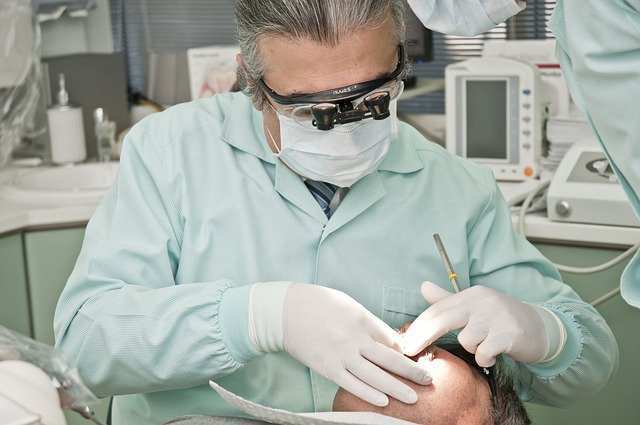Taking the time to properly care for your teeth will benefit you for the rest of your life. Daily brushing and flossing become routine, and regular check-ups with your dentist help to keep your smile looking as good as it possibly can.
You may, on the other hand, occasionally notice a small spot on your molar teeth or elsewhere and be perplexed as to what it is. Which of the following is it, and how do you get rid of it?
Table of Contents
Why Do I Have a Black Spot on My Molar Teeth?
The most important thing to remember after discovering a black dot on a molar is to remain calm. It can occur as a result of a variety of factors, and it is almost certainly not permanent. Having said that, the causes can be minor or severe, depending on the situation. A person’s treatment will differ depending on which type of cancer they have.
It is possible that the black spot on your molar teeth is caused by one or more of the following factors:
- Surface Staining: Staining of the tooth’s surface might occur with the frequent use of specific food or drinks. These may include coffee, tea, red wine, or other soft drinks. Nicotine is another prevalent source of discoloration. These so-called extrinsic stains form when any of these penetrate the tooth’s enamel, especially in a groove or pit within the tooth’s architecture.
- Tartar Build-up: Tartar, a hard substance, can build up on your teeth, particularly at the gumline, resulting to spotting.
- Cavity, or dental decay: Perhaps the most prevalent cause for a black spot on your molar teeth is tooth decay, or a cavity. A cavity arises when the build-up of plaque, which includes acids, is allowed to destroy the surface enamel of a tooth. A hole in the tooth’s protective covering occasionally manifests as a black dot. The tooth’s interior dentin, which is darker, may be visible.
- Excessive Fluoride: The excessive intake of fluoride during the growth of the teeth between the ages of 1-3 years might lead to dark spots on molar teeth. The implications of this are unknown until the teeth erupt into the mouth. This is known as Fluorosis and is caused by high levels of fluoride in drinking water, particularly from untreated and uncontrolled sources.
- Tooth Injury: Various sorts of tooth injuries can occur, including bruising, internal fractures, and infections.
- Medications: Certain medications, especially certain antibiotics, might cause discolouration of teeth when used during tooth growth.
- Medical Condition: If you have certain medical disorders, these dots can emerge. With Celiac disease, tooth enamel fails to form properly, and spots often emerge.
- Age: As aging begins, dental enamel starts to disintegrate, exposing the yellowish-brown dentin below.
How to Get Rid of a Black Spot on my Teeth?

A small black spot on your molar teeth can be removed in a number of ways. To identify any underlying dental health issues, schedule an initial appointment with your dentist. Then take a look at the methods below to get rid of it.
Dental Treatments: If you have spots on your teeth as a consequence of tooth decay, cavities, or damage from a tooth injury, you’ll need to have specific dental procedures performed. Depending on the severity, procedures such as tooth fillings, root canals, and even crowns may be required. Procedures such as dental prophylaxis or periodontal therapy can help remove tartar build-up and erase stains.
Teeth Whitening Aids: When the dark spots are caused by staining rather than cavities or other dental problems, teeth whitening procedures can help. Various over-the-counter whitening treatments, such as a toothpaste containing mild abrasives (e.g., baking soda) and peroxide, or whitening strips, can be used to address shallow stains.
Professional Teeth Whitening: Stains that penetrate the top layer or surface of the teeth will necessitate more aggressive treatment. This refers to a whitening procedure that has been approved and prescribed by a dentist. The application can be completed in the office or at home. For adult patients, Smile Hilliard offers Free Whitening For Life. To learn more, give us a call!
Dental Bonding: Dental bonding is a restorative procedure that involves molding a composite resin to your tooth. After that, your teeth will be polished to a tint that matches your natural tooth color. Bonding is more durable than porcelain veneers, although it does not last as long.
Porcelain Veneers: Veneers are thin shells that are bonded to the fronts of teeth to improve their appearance. Veneers alter the color of the teeth as well as their form, alignment, and size. These are bonded to your teeth indefinitely.
How Can we Avoid More Black Dots on Teeth?
After you’ve gotten rid of the black spot on your teeth, you can take steps to reduce your chances of developing more in the future. Brushing with a toothpaste that has been recommended and flossing twice a day should be continued.
After each meal, drink some water. Reduce the number of stain-causing beverages and foods you consume, and brush after each one. Another important step is to schedule cleanings and examinations with your dentist every two years.
Having healthy teeth and a bright smile can help you feel more confident. A dark spot on your teeth can be noticeable, making you self-conscious and even concerned about the cause. Take action right now to get rid of these unsightly spots.







